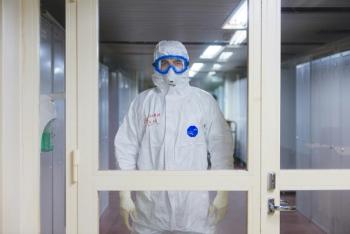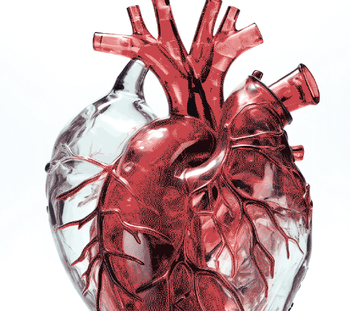
- May 2014
- Volume 1
- Issue 1
Serious Liver Disease Rates Higher Among Coinfected Patients
Study results show hepatic decompensation is more common in people who have both HIV and hepatitis C virus (HCV) compared to those infected only with HCV, an indication that early HCV treatment among coinfected patients is needed.
Hepatic decompensation was more common in people who have both human immunodeficiency virus (HIV) and hepatitis C virus (HCV) compared to those infected only with HCV, an indication that early HCV treatment among coinfected patients is needed, say authors of a recent study.
Unscreened and untreated, HCV can remain in a person’s blood stream for years without symptoms of illness. It can cause severe liver damage over time and lead to cirrhosis, liver cancer and the need for liver transplant.
The risk of hepatitis C-associated serious liver disease persists in HIV patients who otherwise benefit from antiretroviral therapy used to treat HIV, said Vincent Lo Re III, MD, of the Perelman School of Medicine at the University of Pennsylvania, lead author of the retrospective study published in the March 18 issue of
“Our results suggest that serious consideration should be given to initiating hepatitis C treatment in patients coinfected with HIV and hepatitis C ‑‑ particularly among those with advanced liver fibrosis or cirrhosis ‑‑ in order to try to reduce the risk of serious potentially life-threatening liver complications,” Lo Re said in a
Decompensation occurs when the liver is severely damaged and no longer functions normally. The higher rates of serious liver disease found in coinfected patients in this study were classified as liver decompensation, the statement said.
Earlier studies have shown that liver fibrosis is accelerated in coinfected patients but this large study is the first that “head to head compared coinfected patients to monoinfected patients” and looked specifically at clinical liver complications, Lo Re said.
Researchers analyzed data from US Veteran’s Administration medical records of 4,280 patients infected with both HIV and chronic HCV and receiving antiretroviral therapy compared to 6,079 patients infected only with HCV who received care between 1997 and 2010. They measured incidence of hepatic decompensation defined by diagnosis of ascites, spontaneous bacterial peritonitis, or esophageal variceal hemorrhage. Most patients were men and any patients treated for HCV were excluded from the study.
A prevailing perception that effective antiretroviral treatment “will help to make an HIV coinfected person like a monoinfected person” was not supported by data from the study, Lo Re said.
Overall, there was a 56-to-83 percent higher rate of liver decompensation over time among patients who were coinfected and receiving highly active antiretroviral therapy. Among a subgroup that had virologic control in response to therapy, the risk decreased to 44-to-65 percent but was still significantly higher than patients with hepatitis C alone, Lo Re said. The lower range estimates were a result of data analysis that factored death as competing risk because coinfected patients died much more often than patients with HCV alone.
In the past, patients receiving highly active antiretroviral therapy have been reluctant to begin prolonged HCV treatment, which typically required interferon injections and ribavirin and can include serious side effects, Lo Re said. This study showed that while receiving antiretroviral therapy and having virologic control are important for decreased decompensation in coinfected patients, “It is still not enough,” he said.
“It emphasizes the importance for clinicians to consider hepatitis C treatments for their coinfected patients,” he said, especially now that new HCV medications are available that have been shown in clinical trials to have higher cure rates with fewer side effects.
The researchers concluded that despite receiving antiretroviral therapy, patients co-infected with HIV and HCV had higher rates of hepatic decompensation than HCV-monoinfected patients. Furthermore, rates of decompensation were higher for coinfected patients with advanced liver fibrosis, severe anemia, diabetes, and nonblack race.
Articles in this issue
over 11 years ago
Gene Therapy Shows Promise in Neutralizing HIVover 11 years ago
New Details about Hepatitis C Protein May Aid Development of Vaccineover 11 years ago
How Obamacare Will Affect HIV/AIDS Preventionover 11 years ago
Men with HIV Develop More Plaque in Coronary ArteriesNewsletter
Stay ahead of emerging infectious disease threats with expert insights and breaking research. Subscribe now to get updates delivered straight to your inbox.

































































































































